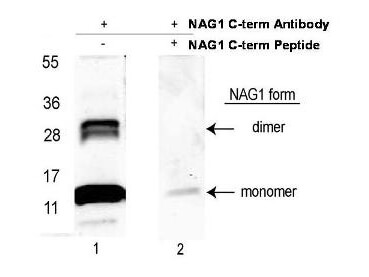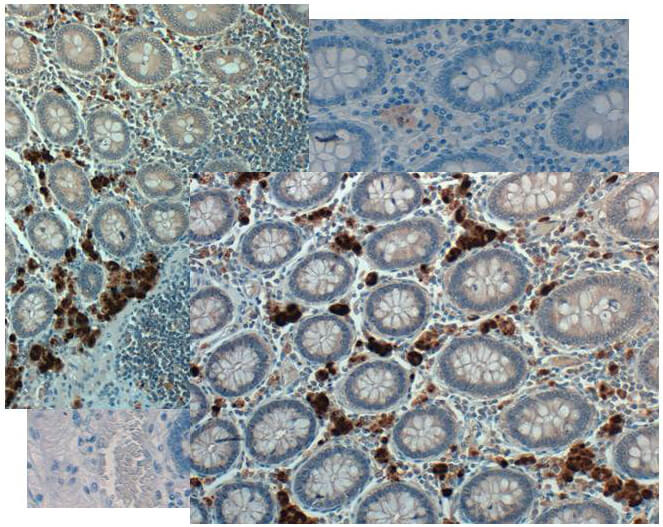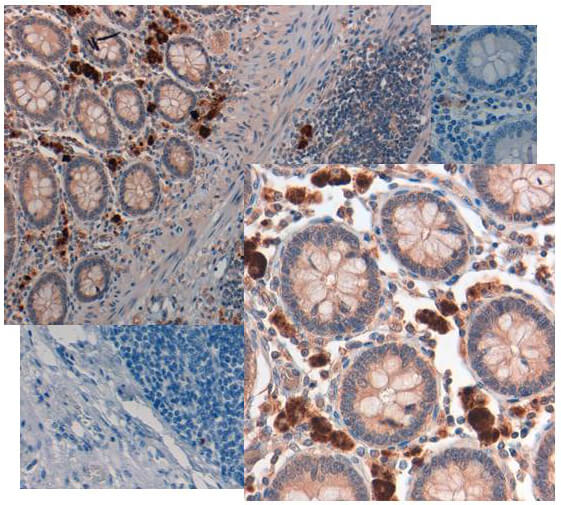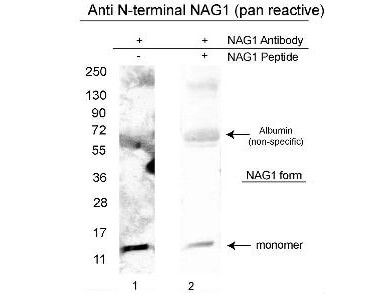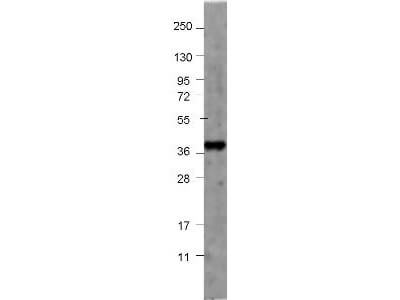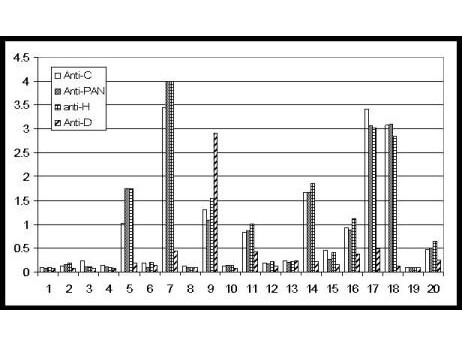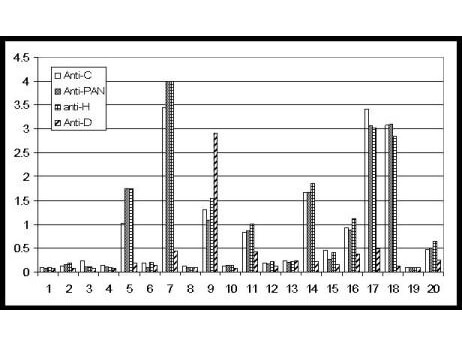Datasheet is currently unavailable. Try again or CONTACT US
GDF15 Antibody Peroxidase Conjugated
Rabbit Polyclonal
600-403-B07
100 µg
Lyophilized
ELISA
Human, Mouse
Rabbit
Shipping info:
$50.00 to US & $70.00 to Canada for most products. Final costs are calculated at checkout.
Product Details
Anti-NAG-1 (C-terminal specific) (RABBIT) Antibody Peroxidase Conjugated - 600-403-B07
rabbit anti-NAG1 antibody peroxidase conjugation, HRP conjugated rabbit anti-NAG1 antibody, NAG 1, NAG-1, GDF15, MIC1, MIC-1, GDF-15, PLAB, PTGFB, nonsteroidal anti-inflammatory drug-activated gene, NSAID-activated gene 1 protein, growth differentiation factor 15, macrophage inhibitory compound 1, Placental bone morphogenetic protein, Prostate differentiation factor
Rabbit
Peroxidase (HRP)
Polyclonal
IgG
Target Details
GDF15 - View All GDF15 Products
Human, Mouse
Conjugated Peptide
Anti-NAG-1 (C-terminal specific) antibody was prepared by repeated immunizations with a synthetic peptide corresponding to a region near the carboxy terminal end of human NAG-1 protein. A residue of cysteine was added to facilitate coupling to KLH.
Anti-NAG-1 (C-terminal specific) was affinity purified from monospecific antiserum by immunoaffinity chromatography. This antibody reacts with the C-terminus of endogenous NAG-1 protein from human and mouse tissues. A BLAST analysis suggests reactivity with NAG-1 from chimpanzee and macaque based on a 100% homology. Partial reactivity is expected against rat based on an 86% homology with the immunizing sequence. Cross-reactivity with NAG-1 from other sources has not been determined.
Application Details
ELISA
Anti-NAG1/GDF15 (C-terminal specific) antibody has been tested by ELISA and is suitable for IHC and western blotting of human and mouse NAG-1 protein. For detection of NAG-1 in human serum, a sandwich ELISA is suggested using this antibody in combination with anti-NAG-1/GDF15 (N-terminal), H variant or D variant specific antibodies. Specific conditions for reactivity should be optimized by the end user. Expect bands in Western blots of approximately 14 and 28 kDa in size corresponding to NAG-1 monomer and dimer, respectively, using the appropriate cell lysate or extract.
Formulation
1.07 mg/ml by UV absorbance at 280 nm
0.02 M Potassium Phosphate, 0.15 M Sodium Chloride, pH 7.2
0.01% (w/v) Gentamicin Sulfate. Do NOT add Sodium Azide!
10 mg/mL Bovine Serum Albumin (BSA) - Immunoglobulin and Protease free
100 µL
Restore with deionized water (or equivalent)
Shipping & Handling
Ambient
Store vial at 4° C prior to restoration. For extended storage aliquot contents and freeze at -20° C or below. Avoid cycles of freezing and thawing. Centrifuge product if not completely clear after standing at room temperature. This product is stable for several weeks at 4° C as an undiluted liquid. Dilute only prior to immediate use.
Expiration date is one (1) year from date of receipt.
Non-steroidal anti-inflammatory drug (NSAID) activated gene (NAG-1) is a member of the transforming growth factor-beta (TGF-beta) superfamily. NAG-1 is also known as Macrophage Inhibitory Cytokine-1 (MIC-1), Growth Differentiation Factor 15 (GDF15), Placental Bone Morphogenetic Protein (PLAB), or Prostate Derived Factor (PDF). NAG-1 is expressed in human placenta, prostate and colon. It possesses antitumorigenic and proapoptotic activities. NAG-1 expression is dramatically increased in inflammation, injury and malignancy. Increase of NAG-1 expression is a feature of many cancers including breast, colon, pancreas and prostate. In a number of studies, NAG-1 expression was increased by a number of NSAIDs. This increase in expression may correlate with the chemopreventive effect NSAIDs seem to have with certain cancers. NAG-1 expression is also induced by PPAR gamma ligands and by several dietary compounds such as conjugated linoleic acids (CLAs), naturally occurring fatty acids in ruminant food products, indoles, epicatechin gallate, and genistein. Induced expression of NAG-1 results in stimulation of apoptosis and inhibition of cell growth. Inhibition of NAG-1 induced expression by small interference RNA (siRNA) results in repression of induced apoptosis. NAG-1 expression is regulated by a numbers of transcription factors such as ERG-1 and Sp1. EGR-1 may be necessary for NSAID-induced NAG-1 expression. The study of expression of NAG-1 proteins, including variants, is important to define their potential role as serum biomarkers for cancer diagnosis, treatment monitoring, epidemiology study, and nutrition surveys.
This product is for research use only and is not intended for therapeutic or diagnostic applications. Please contact a technical service representative for more information. All products of animal origin manufactured by Rockland Immunochemicals are derived from starting materials of North American origin. Collection was performed in United States Department of Agriculture (USDA) inspected facilities and all materials have been inspected and certified to be free of disease and suitable for exportation. All properties listed are typical characteristics and are not specifications. All suggestions and data are offered in good faith but without guarantee as conditions and methods of use of our products are beyond our control. All claims must be made within 30 days following the date of delivery. The prospective user must determine the suitability of our materials before adopting them on a commercial scale. Suggested uses of our products are not recommendations to use our products in violation of any patent or as a license under any patent of Rockland Immunochemicals, Inc. If you require a commercial license to use this material and do not have one, then return this material, unopened to: Rockland Inc., P.O. BOX 5199, Limerick, Pennsylvania, USA.

